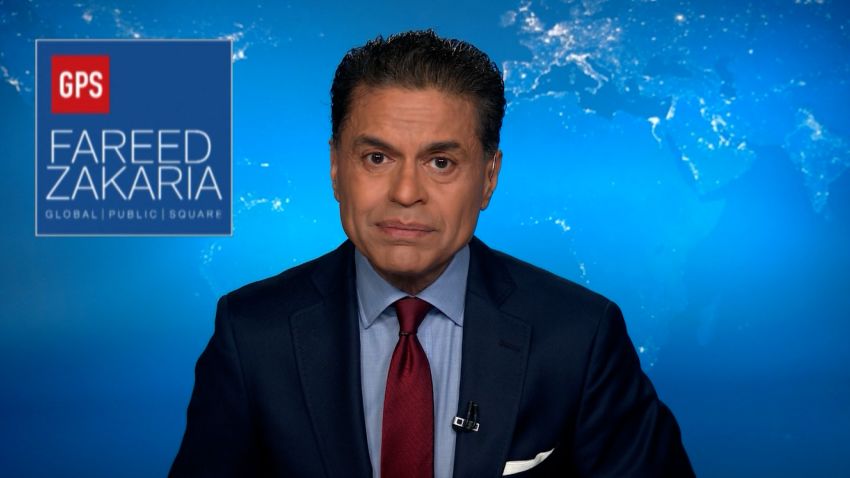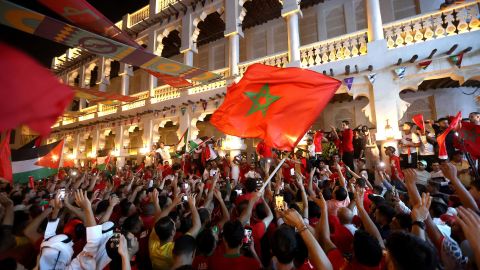‘We’re so used to the ‘other’ playing it but now it’s here:’ What it means for Qataris to experience a World Cup | CNN

CNN
—
Reem Al-Haddad still remembers how excited she felt when Qatar won the right to host the 2022 World Cup.
As a starry-eyed, soccer-mad 11-year-old, Al-Haddad screamed with joy as she watched former FIFA President Sepp Blatter open an envelope, revealing Qatar’s name, live on television, in 2010.
That one of the world’s biggest sporting competitions would be held in Al-Haddad’s country was unimaginable to her back then and, over a decade later, with the tournament in full flow, it’s scarcely believable to her now.
But as she grew older and the tournament drew nearer, Al-Haddad realized that, beyond the sport, this was an opportunity to showcase her country and a region that she loves so much.
“The World Cup has almost always been in Western nations. We never really had the chance to experience it within our countries,” she told CNN, speaking at the Virginia Commonwealth University School of the Arts in Qatar.
“It’s really amazing to have people from all around the world get exposed to Arab culture.
“When people come to Qatar, it might be easier for people to accept the differences and understand how different we are and how one thing, like football, can unite us all.”
Al-Haddad’s story is one of many to be included in the “GOALS” program – a year-long collaborative series which looks to tell the untold stories of this World Cup.
While much of the narrative around Qatar 2022 has focused on off-field issues – from the treatment of migrant workers to homosexuality laws in the country – the “GOALS” program, in collaboration with The Sports Creative, Qatar Foundation, Generation Amazing, and Salam Stores, aims to tell stories from people living and working in Qatar.
All of the individuals volunteered their time as they wanted to tell their stories with zero influence from the state, according to program curator GOAL Click.
Al-Haddad seems timid as she starts talking to CNN, but her demeanor changes when the topic shifts to soccer; her eyes fill with excitement and she talks with confidence about the positive impact she hopes the tournament will have on Qatar.
The 23-year-old didn’t always love soccer. It is a passion that has developed over time and, with it, has come a fascination around a new community and culture.
She says she now uses her social media platforms to post photographs of people from her community playing soccer and hopes the nation’s love for the game will keep growing.

Analysis: Zakaria argues professional sports are inherently political
Al-Haddad is well aware of the issues which have cast a shadow over this World Cup.
The Guardian reported last year that 6,500 South Asian migrant workers have died in Qatar since the country was awarded the World Cup in 2010, most of whom were involved in low-wage, dangerous labor, often undertaken in extreme heat.
The report did not connect all 6,500 deaths with World Cup infrastructure projects and has not been independently verified by CNN.
However, last year World Cup chief Hassan Al-Thawadi disputed that figure and told CNN’s Becky Anderson that the Guardian’s figure was a “sensational headline” which was misleading and that the report lacked context. The issue gained renewed traction following an interview Al-Thawadi gave Piers Morgan during the tournament.
Al-Haddad tries to find the words that best sum up her feelings about the off-field issues.
“As with every nation, we can learn from our mistakes,” said Al-Haddad. The growth is slow, it’s not immediate.”
There is a reluctance to talk further about human rights issues, instead she prefers to speak about how this World Cup could unite people.
It’s an attitude shared with many people around Doha, with some locals and fans frustrated by the constant questions about topics they feel they can’t control.
Haya Al Thani, like Al-Haddad, is also part of the GOALS program.
The 32-year-old is a confident, charismatic woman who works for “Teach For Qatar” – a local organization that works to solve problems students may face in school.
Before her new role, she was a teacher for two years and says the lessons of kindness she used to teach her children could be applied to the narrative around this year’s World Cup.
Despite admitting that things need to change in the country, she says the criticism of Qatar has been too much and she wants the topics to be approached with more respect.
“I think people undermine kindness. People think it’s a secondary thing. They think we have bigger, more political things to focus on and that kindness comes later,” she told CNN.
“I feel like whatever you do, if it’s framed with respect and kindness it goes a long way.
“Just being respectful and being kind, even when the conversations are difficult. When you’re a respectful person […] the conversation is so much more productive.
“I think it’s one of the main reasons why people [in Qatar] are getting defensive because it always feels like an attack. It doesn’t feel like a dialogue.”

Al Thani’s love for soccer started in 2002 and was inspired by one particular player, legendary Italian defender Paolo Maldini.
Maldini was playing for AC Milan at the time and its iconic red and black stripes bore similarities with Al Thani’s local team, Al Rayyan.
She still remembers watching the 2002 World Cup from home, cheering on Italy before it was knocked out by host South Korea in the round of 16. She even learned some Italian in case she ever met Maldini.
Her love for soccer has become intertwined with her family’s passion for the game and she’s overwhelmed that the World Cup has arrived on home soil.
“That person who watched the World Cup behind the screen never believed that she would actually get to experience it in real life,” she added.
Like many of her friends and family, Al Thani has spent years waking up at ungodly times to watch some of the biggest tournaments across South America and Europe.
She recalls staying awake until 1 a.m. to watch a Champions League final or 4 a.m to see action from the Copa America.
“We have the alarms set and everyone is just screaming behind the screens. No one would complain about the timing because we have to adjust with that time,” she added.
“Now it’s happening here, we get to wake up and it’s in our schedule. I’m not sleep deprived. It’s a surreal experience.
“For my father and my aunt, it’s even more amazing. People are just blown away. We’re so used to the ‘other’ playing it but now it’s here. It’s quite a beautiful thing to experience. I’m so grateful.”





